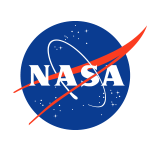Self-Reliant Rovers for Increased Mission Productivity (SRR)
Project Description

The objective of this project is to identify changes to flight software systems and ground operations practices to enable increased surface mission productivity. Current surface missions rely on significant human effort and frequent, regular downlink relays to maintain high levels of productivity.
The project is addressing this challenge by developing the concept of a Self-Reliant Rover that is capable of maintaining high levels of productivity with reduced reliance on ground interaction. This would allow the vehicle to make use of high-level guidance from ground operators in order to select its own activities and respond to unexpected conditions without reliance on ground interaction.
The project will begin with a comprehensive case study of Mars Science Laboratory (MSL) operations in order to obtain a better understanding of productivity challenges facing current surface missions. The case study will include detailed analysis of a selection of MSL campaigns and interviews with operations personnel spanning different mission roles. The case study results will be used to guide our development of Self-Reliant Rover approach.
Our initial conception of the Self-Reliant Rover approach employs goal-based commanding, and onboard resource management to allow the rover to be commanded at a simplified, more intuitive level and increase activity by reasoning about up-to-date knowledge of vehicle resources. Autonomous science and robust, multi-sol navigation enable a rover to use guidance from scientists and engineers to maintain high levels of productivity with reduced ground-in-the-loop reliance. State-aware health assessment is used to monitor progress toward accomplishing objectives and enables the rover to safely sustain productivity when problems occur.
We are also investigating changes to ground operations practices to support interactions with a Self-Reliant Rover with "loose" ground-in-the-loop cycles. We will develop ground-based operations tools, leveraging existing tools when appropriate, to allow the operations team to efficiently interact with the vehicle at a higher-level interface afforded by goal-based commanding and to guide its activities over extended durations. A major goal is to make it natural for operators to interact with a vehicle without requiring knowledge of the state the rover would be in when command products are received.
The final year of the project will included extensive evaluations of a prototype of the Self-Reliant Rover approach on a research rover. We will conduct multi-sol scenarios simulating the mission campaigns.
More »Anticipated Benefits
'Our task is seeking out and developing the most viable sterilization technologies in the state of the art (SOA) outside JPL and adapting them for use in spacecraft hardware applications. Novel developments will include developing aseptic assembly and in situ sterilization techniques using vapor hydrogen peroxide (VHP) (and perhaps other modalities), and preparing the first compilation of materials compatibility with VHP and other viable sterilization modalities. Furthermore, this work will produce the first new system-level biobarrier/bioshield design in 40 years, and will have additional options over the Phoenix robotic arm biobarrier.
The Self-Reliant Rover approach could benefit military and search-and-rescue operations in which high-levels of autonomy is required with constrained communication opportunities.
More »Project Library
Primary U.S. Work Locations and Key Partners
| Organizations Performing Work | Role | Type | Location |
|---|---|---|---|
| Jet Propulsion Laboratory (JPL) | Lead Organization | FFRDC/UARC | Pasadena, California |
Primary U.S. Work Locations
-
California
-
Washington


